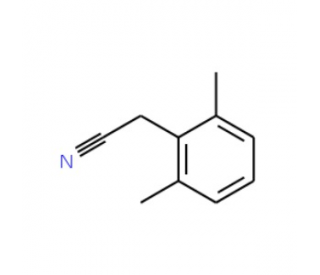详细说明
Species Reactivity
Human
Specificity
Detects human TTK in direct ELISAs and Western blots. In direct ELISAs, no cross-reactivity with recombinant human (rh) CaM Kinase II, rhCAM Kinase II alpha, rhCaM Kinase II beta, rhCaM Kinase IIδ, rhCaM Kinase II gamma, rhCaM Kinase III, rhCaM Kinase IV, rhCaM Kinase K alpha, or rhCaM Kinase K beta is observed.
Source
Monoclonal Mouse IgG 1 Clone # 689913
Purification
Protein A or G purified from hybridoma culture supernatant
Immunogen
E. coli-derived recombinant human TTK
Ser281-Leu481
Accession # P33981Formulation
Lyophilized from a 0.2 μm filtered solution in PBS with Trehalose. *Small pack size (SP) is supplied as a 0.2 µm filtered solution in PBS.
Label
Unconjugated
Applications
Recommended
ConcentrationSample
Western Blot
2 µg/mL
See below
Please Note: Optimal dilutions should be determined by each laboratory for each application. are available in the Technical Information section on our website.
Data Examples
Western Blot | Detection of Human TTK by Western Blot. Western blot shows lysates of A431 human epithelial carcinoma cell line and HeLa human cervical epithelial carcinoma cell line. PVDF Membrane was probed with 2 µg/mL of Human TTK Monoclonal Antibody (Catalog # MAB6028) followed by HRP-conjugated Anti-Mouse IgG Secondary Antibody (Catalog # ). A specific band was detected for TTK at approximately 100 kDa (as indicated). This experiment was conducted under reducing conditions and using . |
Preparation and Storage
Reconstitution
Sterile PBS to a final concentration of 0.5 mg/mL.
Shipping
The product is shipped at ambient temperature. Upon receipt, store it immediately at the temperature recommended below. *Small pack size (SP) is shipped with polar packs. Upon receipt, store it immediately at -20 to -70 °C
Stability & Storage
Use a manual defrost freezer and avoid repeated freeze-thaw cycles.
12 months from date of receipt, -20 to -70 °C as supplied.
1 month, 2 to 8 °C under sterile conditions after reconstitution.
6 months, -20 to -70 °C under sterile conditions after reconstitution.
Background: TTK
TTK (Dual specificity Thr/Tyr kinase; also PYT and hMps1) is a 97-105 kDa member of the Ser/Thr protein kinase family of enzymes. It is expressed in testis and thymus, and participates in cell cycle regulation. In particular, it directs chromosome alignment, centrosome duplication, and spindle assembly checkpoint formation. Via phosphorylation, TTK is known to regulate p53, CDCA8 and TACC2. Human TTK is 857 amino acids (aa) in length. It contains one protein kinase domain (aa 525‑791). Activation occurs following homodimerization and autophosphorylation on Thr675, Thr676 and Thr686. There are two potential splice variants. One shows an alternative start site at Met17, while another shows a deletion of Gln420. Over aa 281-481, human TTK shares 53% aa identity with mouse TTK.
Long Name:
TTK Protein Kinase
Entrez Gene IDs:
7272 (Human); 22137 (Mouse); 315852 (Rat)
Alternate Names:
CT96; dual specificity protein kinase TTK; EC 2.7.12.1; ESK; FLJ38280; monopolar spindle 1-like 1; Mps1; MPS1L1; MPS1L1PYTcancer/testis antigen 96; phosphotyrosine picked threonine kinase; Phosphotyrosine picked threonine-protein kinase; PYT; TTK protein kinase; TTK











 粤公网安备44196802000105号
粤公网安备44196802000105号